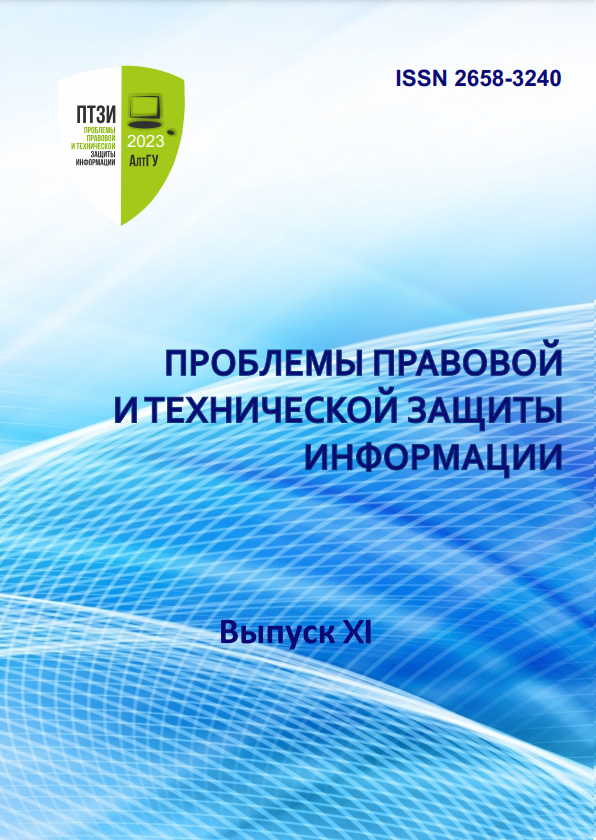ON THE PROSPECTS FOR THE DEVELOPMENT OF A COGNITIVE APPROACH AND INFORMATION TECHNOLOGIES FOR FORENSIC ACTIVITIES УДК 343.98.06
Main Article Content
Abstract
Recently, forensic scientists are increasingly talking about the shift of paradigmatic layers towards either a situational approach that has already become a scientific habit, or less studied methodological directions. The latter may include a cognitive approach.
The analysis of modern forensic research allows us to notice successful examples of appealing to some system-forming features of cognitive sciences, united by the idea of studying the possibilities of human thinking in its various manifestations, including various forms of cognition with subsequent processing and representation of information. Because working with information seems to be one of the main tasks of the subject of forensic activity.
The appeal to the cognitive direction in criminology continues the developments of the system-activity approach. However, the main place in this case is not given to the activity of the individual as such, but to the analysis of the individual himself in the course of his activity. And if the basic principle of the situational approach consists in knowing the situation and correcting one's behavior according to it, then the cognitive approach, determining the supra-situational level of perception of phenomena and events, involves correcting the situation itself or influencing the probability of its occurrence.
Downloads
Article Details
References
Холопов А.В. Когнитивный подход как способ преодоления кризиса в криминалистике // Криминалистъ. 2018. № 4 (25). С. 47-60.
Сокращенный перевод статьи Н. Хомского в журнале Language (№ 1, том 35, 1959). Пред-ставлен критический анализ теории вербального научения, разработанной Б.Ф. Скиннером. Цит. по кн.: Когнитивная психология: история и современность: хрестоматия / сост. М. Фа-ликман и В. Спиридонова. М., 2011. 383 с.
Хорошева А.Е. Визуальная информация и ее исследование в судебном разбирательстве уголовных дел // Всероссийский криминологический журнал. 2023. Т. 17, № 2. С. 184-192.
Бахтеев Д.В. Теория криминалистического мышления. М.: Юрлитинформ, 2024. 264 с.
Гибсон Дж. Экологический подход к зрительному восприятию. М.: Изд. КоЛибри, 1988. 464 с.
Баксанский О.Е., Кучер Е.Н. Познание познания: когнитивные науки // Эпистемология & философия науки. 2006. Т. VII, № 1. С. 148-169.
Фаликман М.В. Структура и динамика зрительного внимания при решении перцептивных задач: конструктивно-деятельностный подход: автореф. дис. … докт. псих. наук. М., 2016. 46 с.

